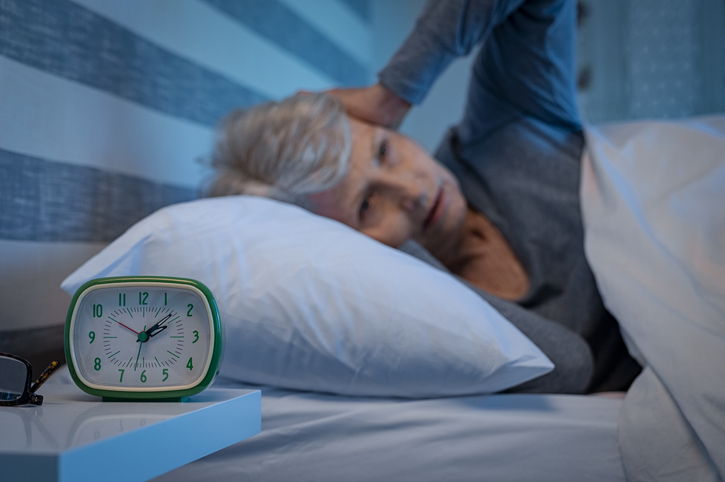
Many elders struggle with sleep issues. Learn tips to help here.
Tossing and turning. Counting sheep. Staring at the clock. If this describes a typical night for your senior loved one, know that he or she is in good company. While seniors require between 7 and 9 hours of sleep each night, as many as 50% of older adults report difficulties with falling and/or staying asleep. Yet it’s important to note that while senior sleep issues may be common, they are not a normal part of aging – and there are steps that can be taken to improve sleep for your elderly loved ones.
First, it’s important to rule out a clinical sleep disorder, which can include symptoms experienced regularly such as:
- Difficulty falling asleep even when tired
- Difficulty falling back to sleep once awakened
- Sleepiness or irritability during waking hours
- Concentration or focus problems, or falling asleep when sitting still (such as when driving or watching TV)
- Uncontrollable emotions
- Reliance on alcohol or sleeping pills to obtain needed sleep
The doctor should be consulted if a sleep disorder is suspected. For many older adults, however, there’s an underlying cause behind the insomnia. Some of the common causes of senior sleep difficulties are listed below, along with tips to help:
- An environment that’s not conducive to sleep. Ensure the bedroom is cool, dark, and quiet. Remove the TV and any electronics from the bedroom, and stick to a regular sleep routine that begins with soothing music, a warm bath, reading, or any other calming activities, followed by a set time to go to bed each night.
- Medication side effects. Review any medications – both prescription and over-the-counter – to see if sleep disruptions may arise, and then talk with the senior’s physician about whether any medication changes are warranted.
- A sedentary lifestyle. Staying as active as possible during the day can go a long way towards a better night’s sleep. Encourage your senior loved one to sign up for an exercise class, take a daily walk each afternoon, or join a local pool and make a point to swim each day (all with the doctor’s approval).
- Chronic disease complications. Conditions such as Alzheimer’s disease, diabetes, osteoporosis, and more can lead to senior sleep disturbances. Check with the senior’s doctor for recommendations.
- Post-menopause. We know that the hot flashes often experienced during menopause can interfere with sleep, but hormone-related sleep problems can continue well beyond menopause as well. The lifestyle changes noted above can help.
Absolute Companion Care, providers of home care in Harford County and the surrounding areas depend on, can help with senior sleep issues in a variety of ways as well. Call us at 410-357-9640 to schedule a free in-home consultation to learn more! And visit our Service Area page to find out if our customized home care services for seniors are available in your area.
